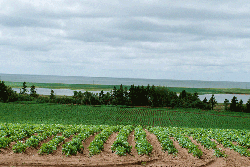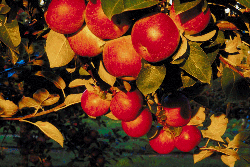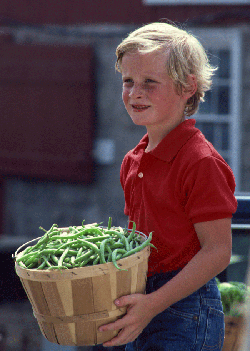
Organics at Bicycle City
Organic Farms at Bicycle City – for people, animals and the earth.
 Bicycle City will attract people who are committed to reducing chemicals from their lives – from the food they eat and the air they breathe. These same people will appreciate that organic farms at Bicycle City communities won’t contribute to the pollution of local water or harm the neighboring wildlife. The farms at Bicycle City will not only attract residents who both want to eat the produce and grow it – that is, work on the farm – the successful implementation of the farm will bring revenue and jobs to the community.
Bicycle City will attract people who are committed to reducing chemicals from their lives – from the food they eat and the air they breathe. These same people will appreciate that organic farms at Bicycle City communities won’t contribute to the pollution of local water or harm the neighboring wildlife. The farms at Bicycle City will not only attract residents who both want to eat the produce and grow it – that is, work on the farm – the successful implementation of the farm will bring revenue and jobs to the community.
Each Bicycle City community that we develop will include organic farming, an obvious component of our commitment to benefit people, animals and the earth. Organic produce will provide fresh, healthy nourishment for our local residents, and may also allow surrounding neighbors to benefit from any extra produce offered for sale.
Organic methods are healthier for people.
Organic methods benefit people in many ways. The heath benefits of consuming fruits and vegetables that have not been doused in pesticides and fertilizers are obvious. An apple grown in a non-organic orchard can have up to thirty chemicals on the skin, even after it is washed. These chemicals are poisonous and even if the fruits and vegetables are washed, it is unlikely that people can avoid ingesting some level of chemical. Many conventional farmers actually use human waste and waste water to make their produce larger, as well as more additives during processing that extend the natural shelf life of the products. (Source: Organic Food and Organic Food Research) Organic produce tastes better and is healthier for people. Organic food labels show that the produce has twice the levels of nutrients, vitamins and minerals than conventionally-grown produce. You’d have to eat twice as much to get the same nutritional value – and you’d also be getting twice the chemicals.
Organic methods are healthier for animals.

Organic farming methods allow the natural order of things to occur. Among other methods, pests can be controlled by providing habitat for their natural predators. Crop rotation keeps the soil healthy and the selection of resistant plants also helps support healthy farms. The use of fertilizers and pesticides in farming results in those poisonous chemicals being released into the local water systems, where they affect wildlife. Studies have measured the environmental cost of pesticides in the lives of animals, primarily birds, killed by exposure and by the decline in “good” insects, such as honeybees in the U.S. Wild animals, particularly those living in water, such a s frogs, are being born with extra legs or no eyes. Pests adapt to pesticides, so stronger formulas are developed. The cycle is not healthy for people, animals or the earth. Source: Organics are healthier for animals.)
Organic methods are healthier for the earth.

Results of a 15-year study showed that organic farming methods lock more carbon into the soil than conventional farming methods. Organic fertilizers used instead of conventional fertilizers in the major growing areas of the U.S. can reduce annual carbon dioxide emissions by up to 2%. The study also found that organic methods also use half the energy of conventional methods. Other studies have estimated that only one percent of applied pesticides reach the targeted pests – the remaining 99% is absorbed into the local environment. (Source: Organics are healthier for the Earth.) The benefits of eliminating these harmful poisons from our foods and our environment will positively affect people, animal and the earth. Bicycle City's commitment to support organic farms in all of our communities is another way we can work together for a better future for ourselves and our children.